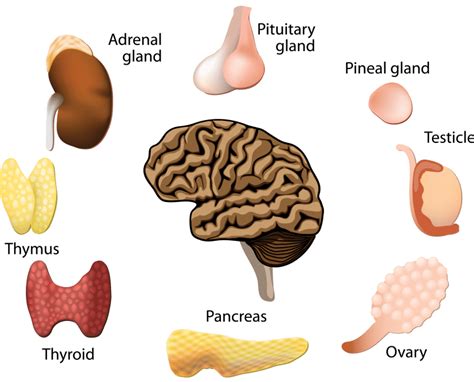For men specifically, how does sleep quality directly impact strength gains and recovery from intense workouts?

The Unsung Hero of Male Strength and Recovery
For men dedicated to pushing their physical limits through intense workouts, the pursuit of strength gains and efficient recovery often focuses on diet, training protocols, and supplementation. Yet, one of the most powerful, often overlooked, and entirely natural performance enhancers lies in the quality of their sleep. Far from being merely a passive state, sleep is an active and critical biological process that directly dictates a man’s capacity to build muscle, increase strength, and bounce back faster from demanding training sessions.

Hormonal Harmony: Testosterone and HGH
One of the most significant impacts of sleep quality on male strength and recovery is its profound influence on hormone regulation. Testosterone, the primary male sex hormone, is crucial for muscle protein synthesis, bone density, and overall energy levels. Studies consistently show that insufficient sleep (e.g., less than 7-8 hours) can drastically reduce morning testosterone levels, sometimes by as much as 10-15% in just a few days of sleep restriction. This hormonal dip directly hinders a man’s ability to build and maintain muscle mass, making strength gains an uphill battle.
Similarly, Human Growth Hormone (HGH), another vital anabolic hormone, is predominantly released during deep sleep cycles. HGH plays a key role in muscle growth, fat metabolism, and tissue repair. Disrupting these deep sleep phases compromises HGH secretion, slowing down the repair of micro-tears in muscle fibers and impeding the adaptive processes that lead to increased strength and size. For men, optimizing sleep is paramount to maintaining a robust anabolic environment.

Central Nervous System (CNS) Revitalization
Intense weightlifting and high-intensity interval training don’t just tax your muscles; they significantly stress your Central Nervous System (CNS). The CNS is responsible for recruiting muscle fibers and coordinating movement. When the CNS is fatigued, you experience reduced strength, slower reaction times, and diminished power output, even if your muscles feel ready. Sleep is the primary mechanism by which the CNS recovers. During sleep, neurotransmitters are replenished, and neural pathways are “reset,” allowing for optimal nerve signal transmission to muscles. Consistent lack of sleep can lead to chronic CNS fatigue, manifesting as stalled progress, decreased motivation, and an increased risk of injury, directly impairing strength gains.
Muscle Repair, Glycogen Replenishment, and Inflammation
Beyond hormones and the CNS, sleep is a critical period for direct muscle repair and energy restoration. During deep sleep, the body ramps up protein synthesis, delivering amino acids to repair and rebuild muscle fibers that were broken down during exercise. Without adequate sleep, this repair process is compromised, leading to prolonged muscle soreness (DOMS) and hindering the adaptive responses necessary for strength improvements.
Furthermore, sleep facilitates the replenishment of muscle glycogen stores. Glycogen is the stored form of glucose, serving as the primary fuel source for high-intensity exercise. Inadequate sleep can impair the body’s ability to fully restock these reserves, leaving you feeling sluggish and weaker for subsequent workouts. Sleep also plays a vital role in regulating inflammatory responses. Intense exercise causes micro-trauma and inflammation; good sleep helps to mitigate this, reducing pain and accelerating the healing process, thereby ensuring a quicker return to peak performance.

Beyond the Physical: Mental Acuity and Motivation
The impact of sleep quality extends beyond the purely physiological. A well-rested mind exhibits greater focus, better decision-making, and enhanced pain tolerance – all crucial elements for a productive workout. Sleep deprivation can lead to irritability, decreased motivation, and impaired cognitive function, making it harder to push through challenging sets, maintain proper form, and stick to a consistent training schedule. For men striving for peak performance, mental resilience is just as important as physical strength, and quality sleep is its cornerstone.

Practical Steps for Optimal Sleep
Recognizing the profound impact of sleep, here are actionable steps men can take to enhance their sleep quality:
- Establish a Consistent Sleep Schedule: Go to bed and wake up at roughly the same time every day, even on weekends.
- Create a Relaxing Bedtime Routine: Wind down with activities like reading, light stretching, or a warm bath, avoiding screens for at least an hour before bed.
- Optimize Your Sleep Environment: Ensure your bedroom is dark, quiet, and cool. Consider blackout curtains, earplugs, or a white noise machine.
- Limit Caffeine and Alcohol: Especially in the afternoon and evening, as both can disrupt sleep architecture.
- Regular Exercise (but not too close to bedtime): Physical activity promotes better sleep, but intense workouts too close to bedtime can be stimulating.
- Manage Stress: Techniques like meditation, deep breathing, or journaling can help calm the mind before sleep.

Conclusion: Prioritize Your Sleep for Peak Performance
For men aiming to maximize their strength potential and achieve optimal recovery from intense training, sleep is not a luxury; it is a fundamental pillar of fitness. By directly influencing anabolic hormone production, CNS recovery, muscle repair, energy replenishment, and mental acuity, quality sleep is indispensable. Prioritizing 7-9 hours of high-quality sleep each night is arguably one of the most effective, yet often underestimated, strategies for unlocking new levels of strength, resilience, and overall athletic performance.









